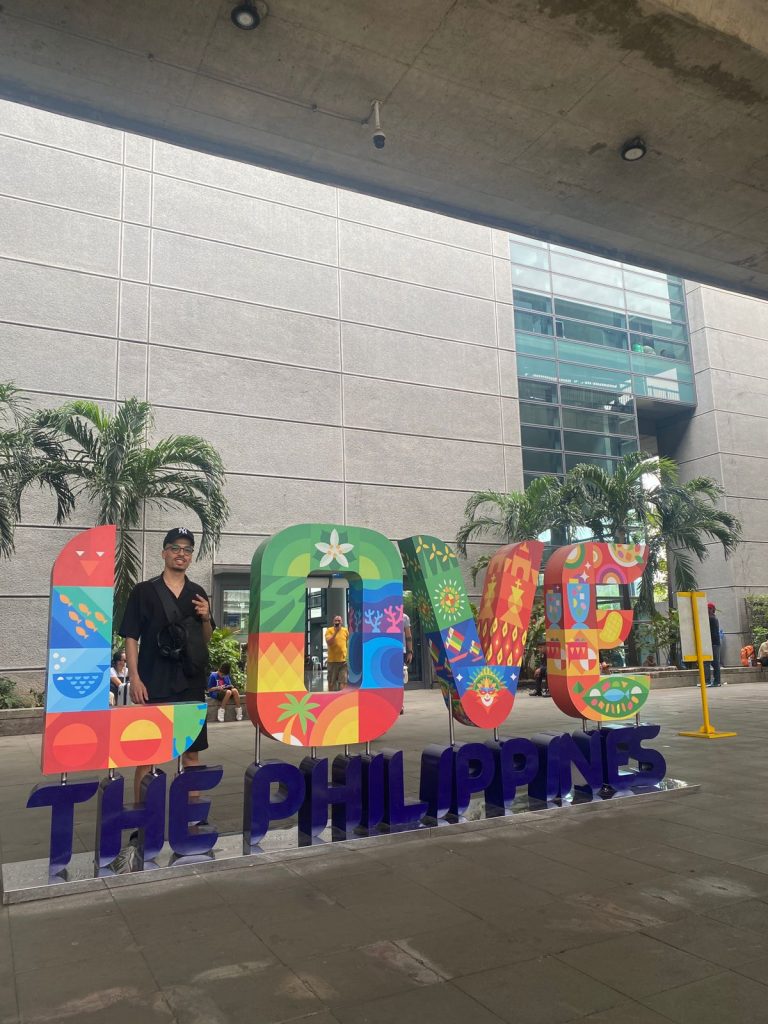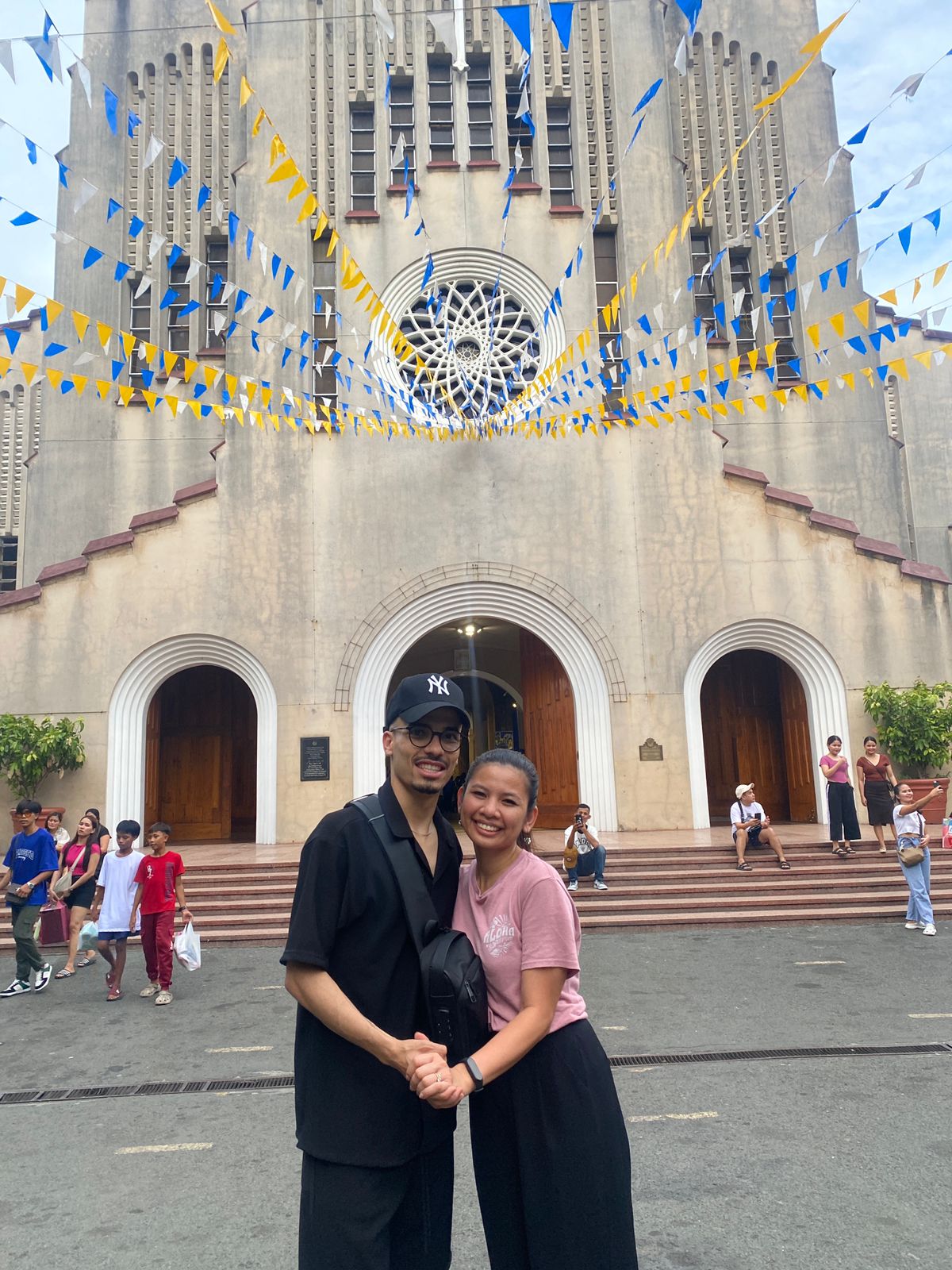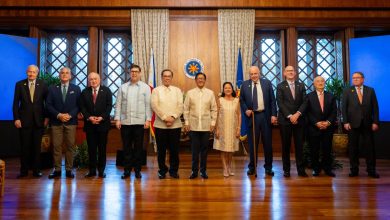Wherever we go, the Filipino language will always be a huge part of our culture. As OFWs in a different country, communicating in a different language, we never forget what our national hero Jose Rizal said: “Ang hindi marunong magmahal sa sariling wika ay masahol pa sa hayop at malansang isda.”
But guess what? It’s not just us Filipinos who love our mother tongue. Many foreigners in the UAE also deeply admire our language and embrace the vibrant culture and values that come with it.
For the Buwan ng Wika, let’s celebrate our mother tongue and its role in fostering friendships and relationships with foreign friends, as well as contributing to the lives and culture in the UAE.
Pinoy kami sa UAE
The UAE is home to a diverse population from around the world, with approximately over 1 million Filipinos making up a significant portion.
With their strong character, diverse skills, and fluency in English, Filipinos secure jobs in marketing, tourism, retail, and domestic work, especially in the architecture, engineering, and healthcare sectors. This is proven by The Filipino Times Watchlist, which honors exceptional Filipinos in the Middle East for their achievements in these fields.
Meanwhile, other Filipinos who have married foreigners are sharing their rich culture and unique character with their spouses, all through the use of their language.
Spreading ‘respeto’ abroad
Respect is a cornerstone of Filipino culture, deeply woven into our daily lives, which is why we use words like “ate” and “kuya,” along with “po” and “opo.” While some cultures may lack equivalents, OFWs in the UAE have taught their foreign friends these words, spreading the Filipino tradition of respect across borders.
In one of our Tanong ng Bayan posts, one commenter said: “Makakasalubong ka ng mga lokal na bata. Ang tanong sayo, ‘kumusta ka?’ And when you do something nice to other nationalities, they will reply with ‘salamat po.’”
A mix of Filipino flavors and hospitality
While some foreigners learn about respect through Filipino words, others experience Filipino food and our culture of warmth and hospitality. At mealtimes, it’s hard to miss a Filipino’s inviting “tara, kain” while teaching the words “Adobo,” “Paksiw,” “Sinigang,” and more.
Even the ingredients for these dishes are familiar to our foreign friends! Kela Agustin, an OFW based in Dubai, said: “Pag dumadaan ako sa grocery, sinasabi nilang ‘Ate, bili ka na ng gulay.’ Legit! Tas pag naghahanap ako ng siling pansigang, alam nila kung ano yung itsura nun. Sila pa ang nag-aabot sa akin.”

In the fish market, it’s the same story—vendors know all the names of fish in Tagalog. They even outshine customers who are beginners in cooking, struggling to identify the different types!
Filipino products everywhere
Since many people in the UAE love Filipino dishes, businesses owned by non-Filipinos are selling products with Filipino names. For instance, you may see Filipino-branded products like NutriAsia’s ‘Mang Tomas’ and ‘Datu Puti’ in WestZone, an Indian-owned supermarket.
Dave Jesther Candelario, a butcher in Dubai, shared that foreigners from Nepal and India have married Filipinas and bought Pinoy products from their supermarket branch.
“Minsan, bumibili po sila ng mga frozen food at karne made from the Philippines,” says Dave. Additionally, his Nepali co-worker Keshav Thapa, understands the Filipino terms “sinigang cut” or “adobo cut” and knows how to cut them.
Foreigners tune in to OPM
And let’s not forget the Filipino knack for fun! What better way to enjoy ourselves than with OPM music? Many foreigners across the globe have joined the trend on TikTok, dancing and singing along to hits like BINI’s “Pantropiko” and “Salamin, Salamin.” But did you know that foreigners in the UAE also love singing and dancing to other popular OPM songs?

“I love the song Raining in Manila. There are a lot of emotions there,” Djaber Nacer, an Algerian residing in the UAE, told The Filipino Times. “I once went to Manila, Philippines, and experienced the rain. When you look outside the car’s window during traffic, you will really feel the vibe.”
“I’m glad I have a Filipina wife. I am not ‘mag-isang nanginginig,’” he joked, quoting lyrics from the song.
Foreigners in the UAE are likely familiar with many more Filipino words beyond those mentioned. Each word taught carries a piece of Filipino culture, adding to the rich cultural blend of the UAE.
So, let us take pride in how our mother tongue has touched lives far from home, proving that the reach of the Filipino language extends well beyond borders.








